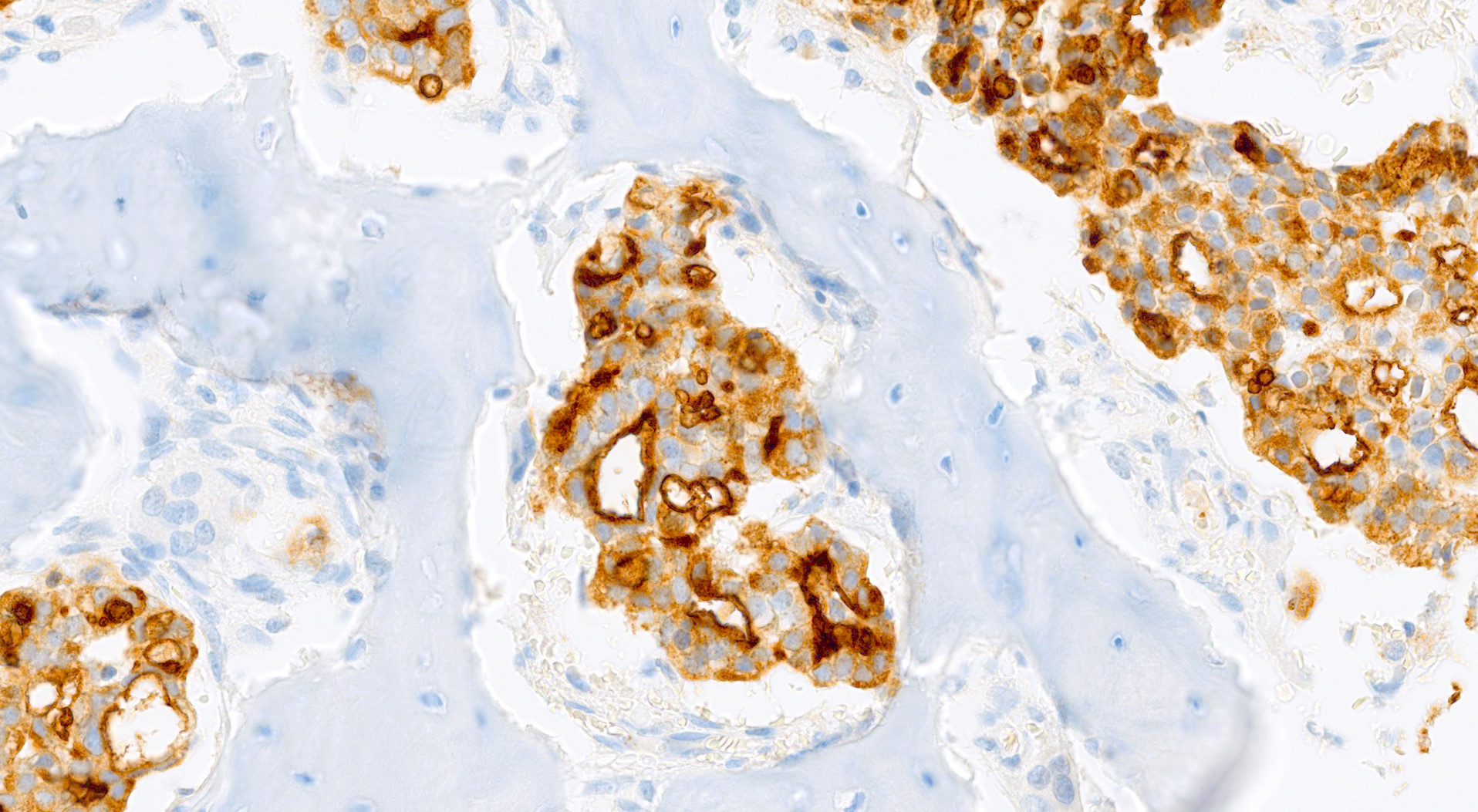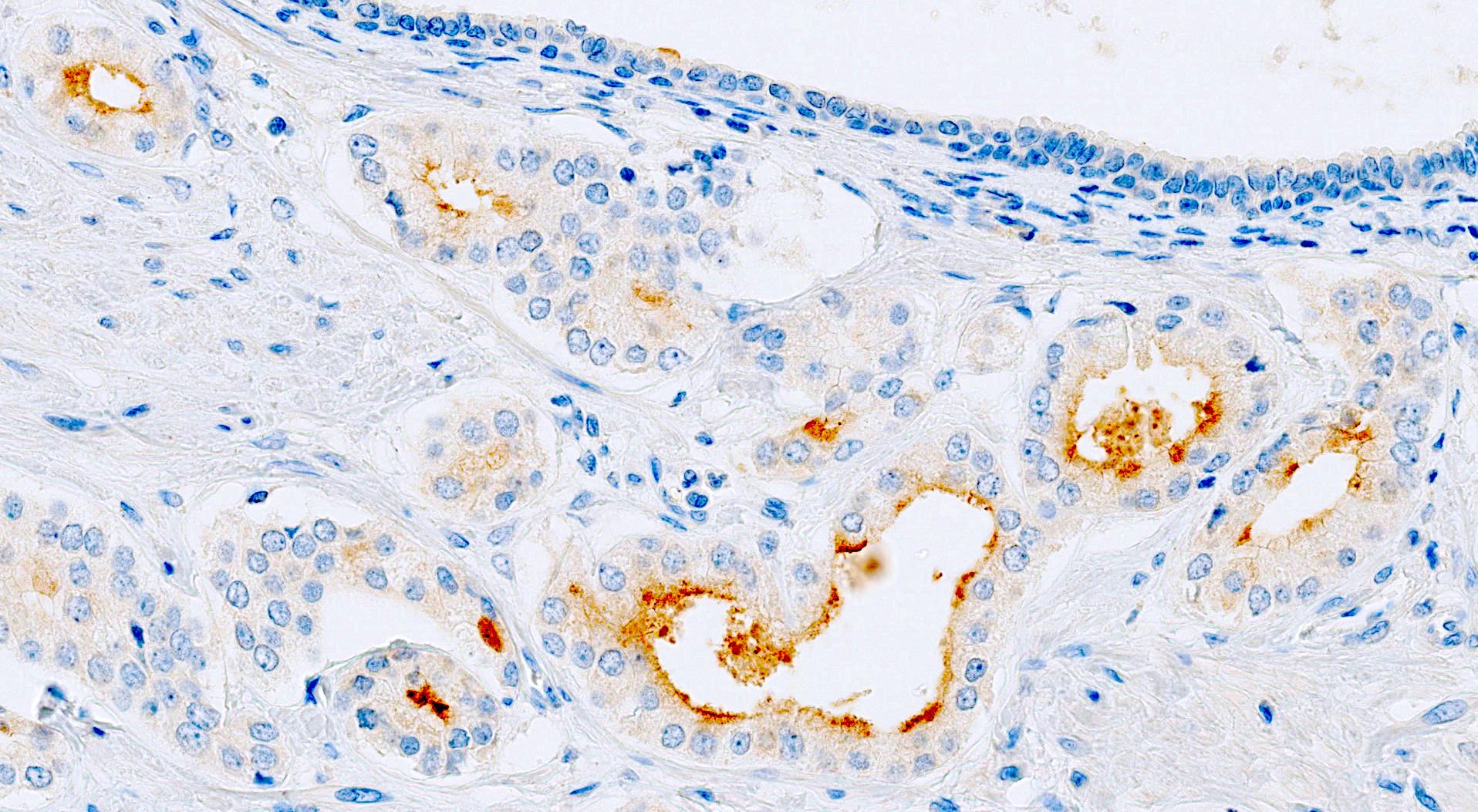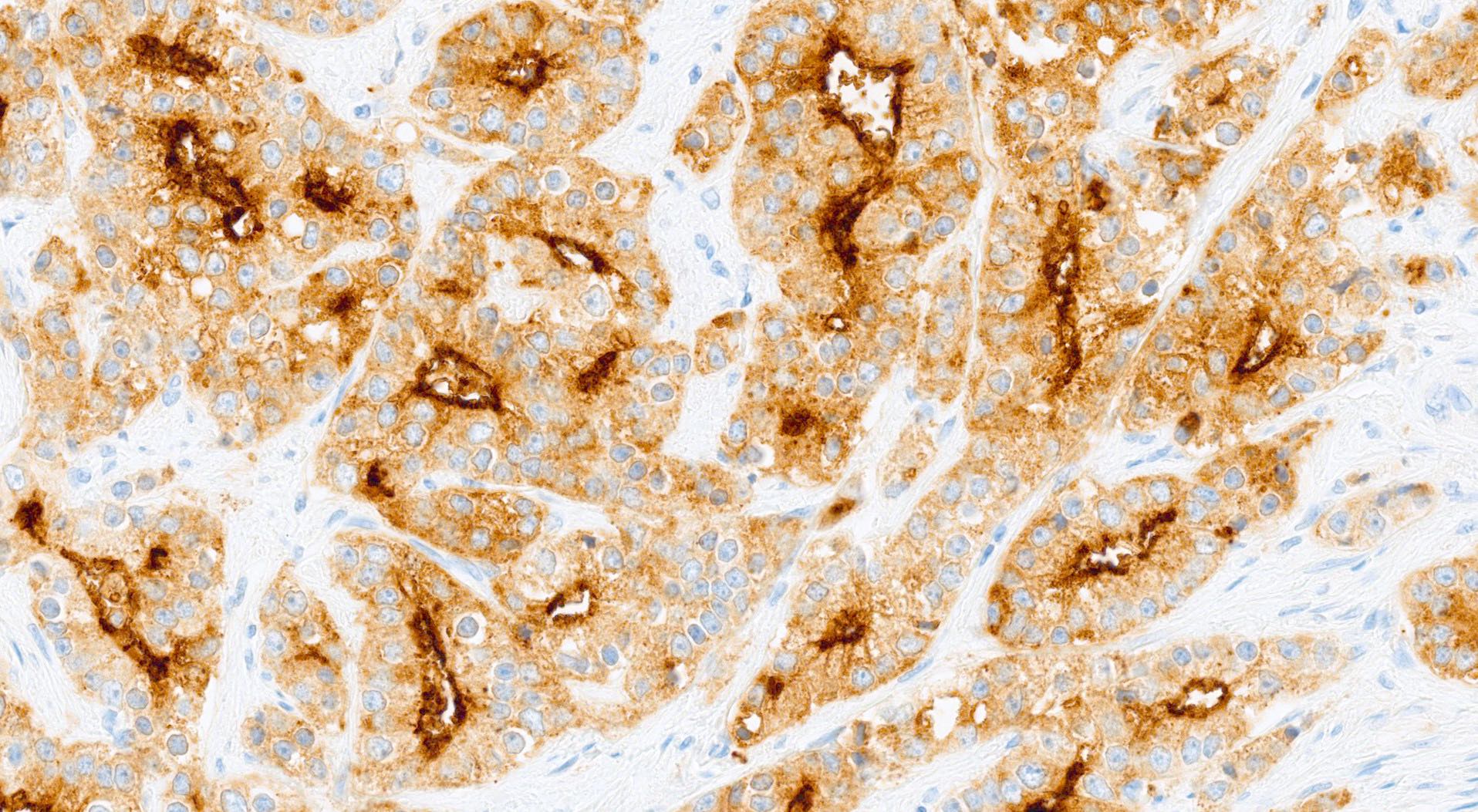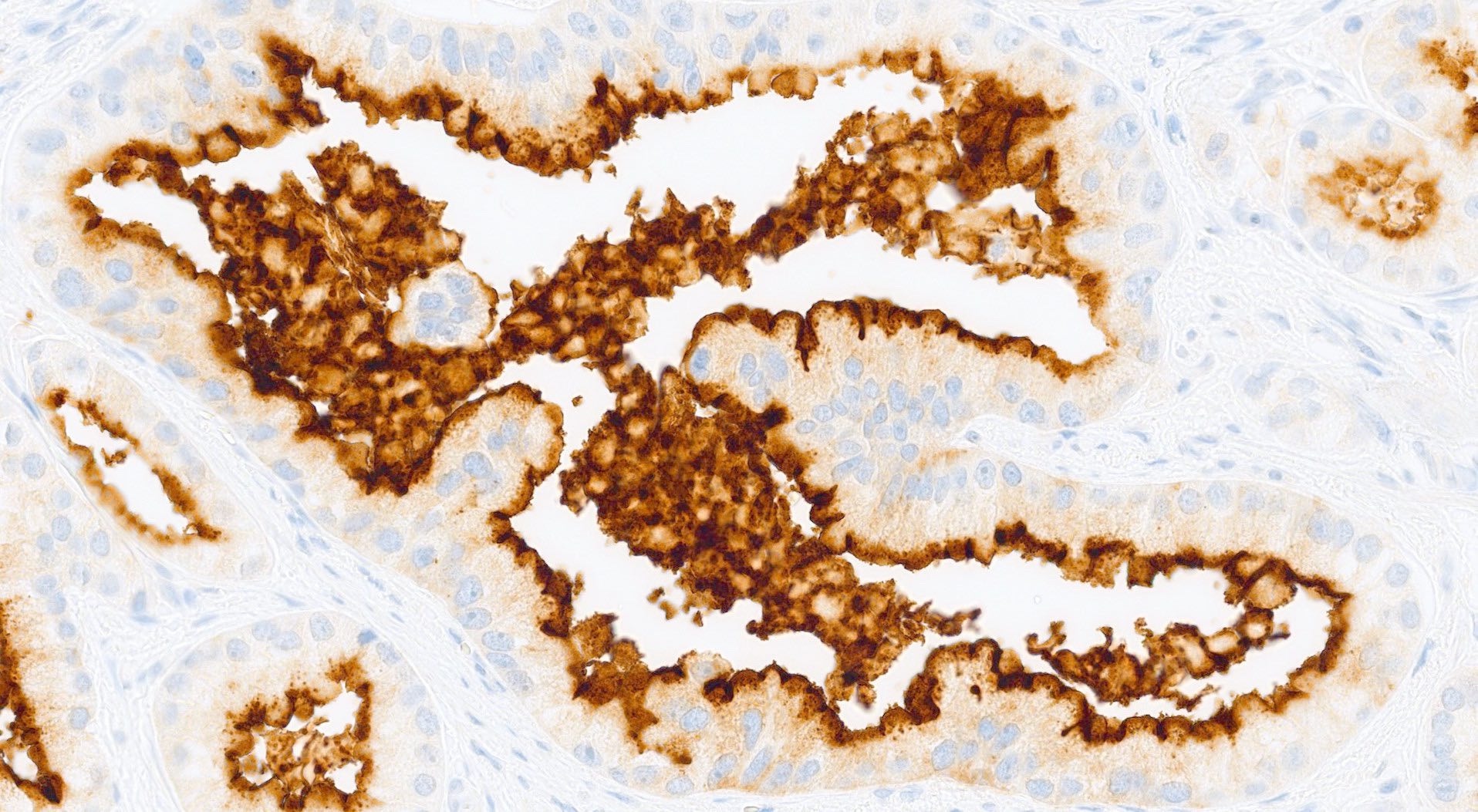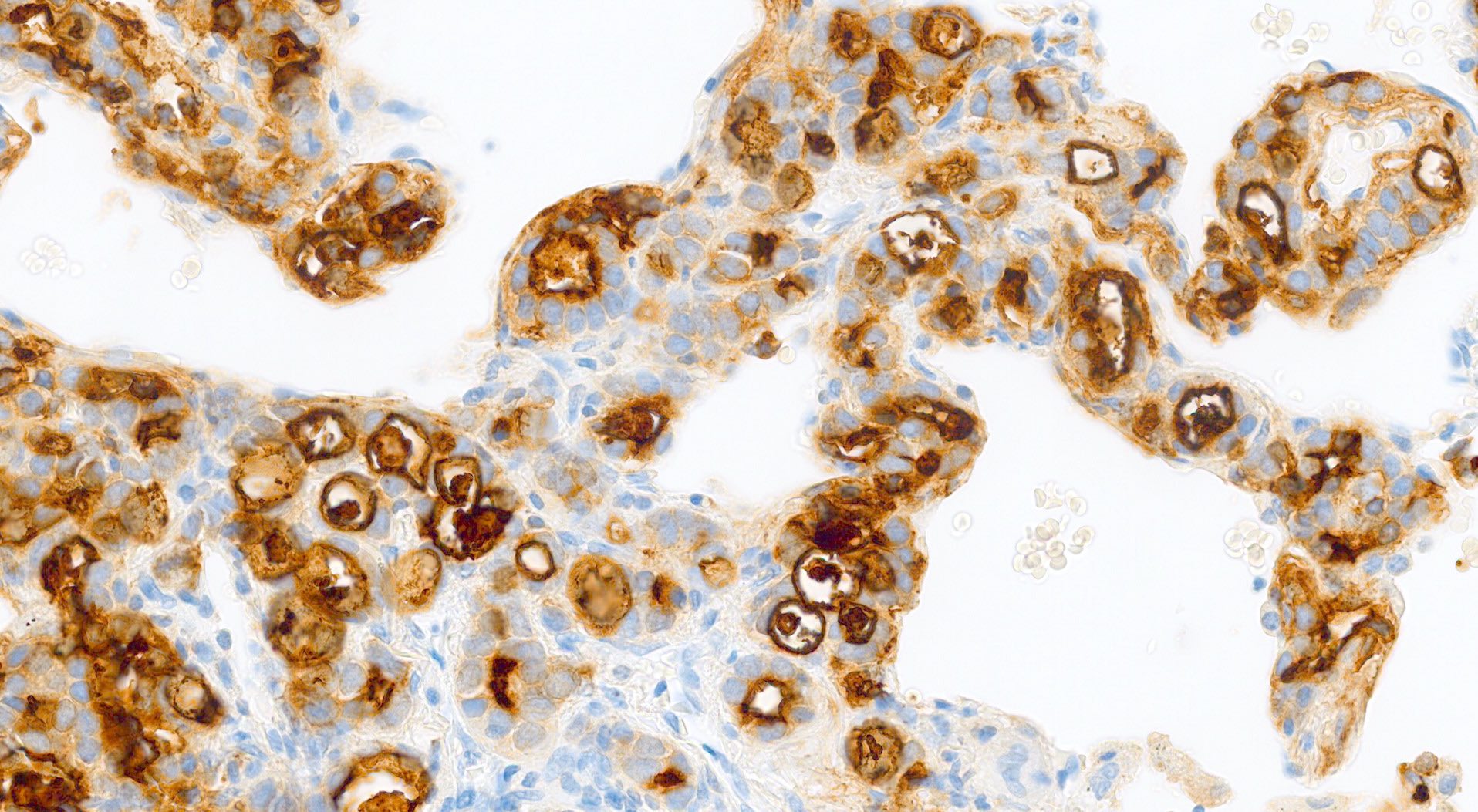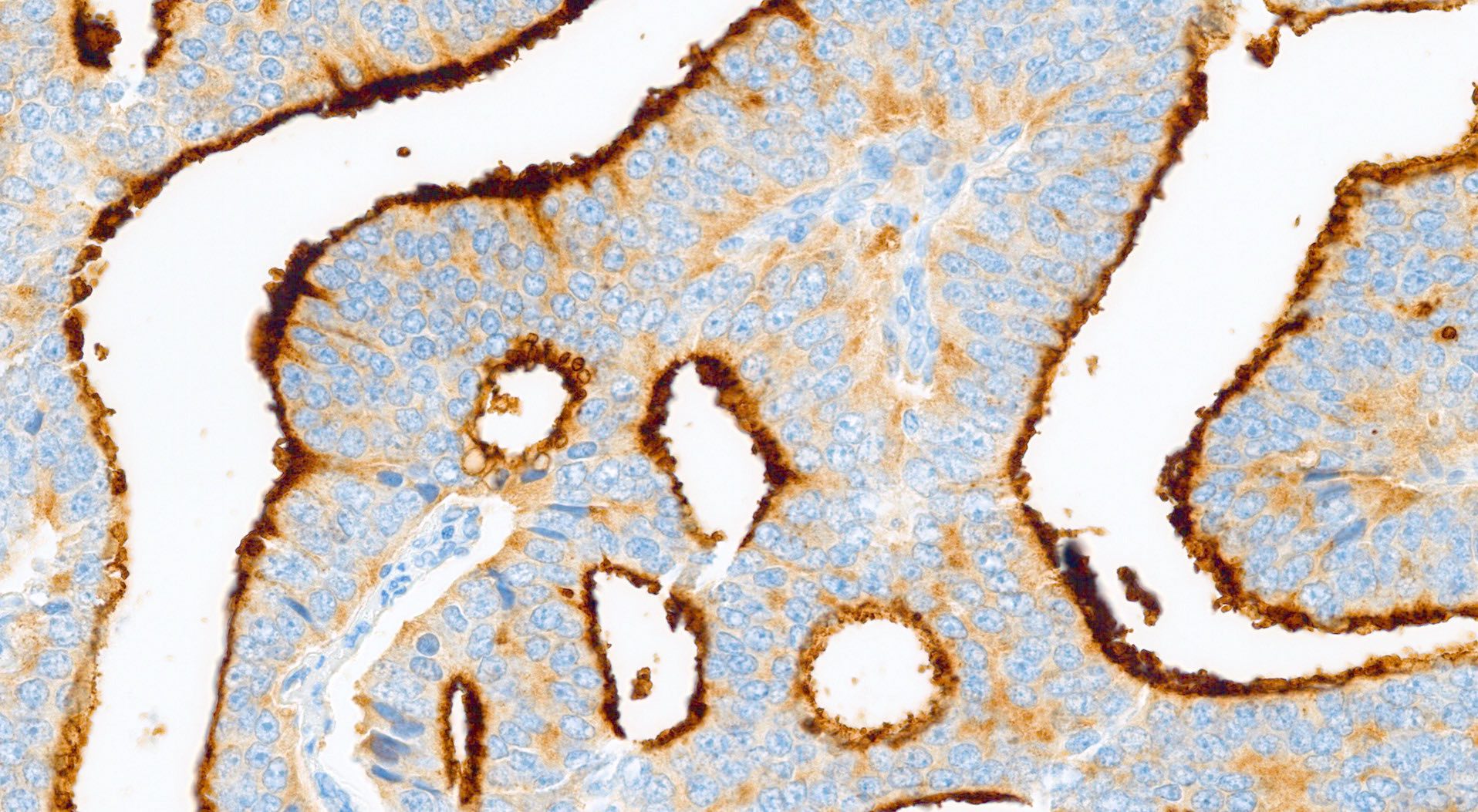Table of Contents
Definition / general | Essential features | Terminology | Pathophysiology | Clinical features | Interpretation | Uses by pathologists | Prognostic factors | Microscopic (histologic) images | Positive staining - normal | Positive staining - disease | Negative staining | Board review style question #1 | Board review style answer #1Cite this page: Sven P, Lars T. Prostate specific membrane antigen (PSMA). PathologyOutlines.com website. https://www.pathologyoutlines.com/topic/stainspsma.html. Accessed April 18th, 2024.
Definition / general
- Type II transmembrane glycoprotein with folate hydrolase and NAALAD (N acetylated alpha linked acidic peptidase) activity, encoded by the FOLH1 (folate hydrolase 1) gene
- Upregulated with androgen deprivation (EJNMMI Res 2015;5:66)
- Oncogenic in prostate carcinoma via PI3K and Akt pathways (J Exp Med 2018;215:159)
- Can be effectively targeted for both diagnostic and therapeutic purposes in the management of prostate carcinoma
Essential features
- Membranous and cytoplasmic marker of prostate adenocarcinoma, less sensitive and specific than NKX3.1
- Upregulated with androgen deprivation
- Correlates with higher Gleason grade
- Less frequently found in various other tumors
Terminology
- Synonymous names outside pathology:
- Glutamate carboxypeptidase II (GCPII)
- N acetyl L aspartyl L glutamate peptidase I (NAALADase I)
- NAAG peptidase
Pathophysiology
- In prostate carcinoma: PSMA's carboxypeptidase activity releases glutamate from vitamin B9 and other glutamated substrates, which activate metabotropic glutamate receptor (mGluR I); activated mGluR I then induces activation of phosphoinositide 3 kinase (PI3K) through phosphorylation of p110β (J Exp Med 2018;215:159)
- In brain: catalyzes hydrolysis of N acetylaspartylglutamate (NAAG) to glutamate and N acetylaspartate (NAA), thus indirect inhibitory effect of NAAG on GABA with consequent regulation of glutamate neutrotransmitter level (J Biol Chem 1987;262:14498)
- In gut: assists in folate uptake (Clin Cancer Res 1996;2:1445)
Clinical features
- Clinical use in prostate cancer imaging by gallium 68 PSMA PET scan
- PSMA PET is also positive in salivary glands (J Nucl Med 2019;60:1270)
- Radioligand therapy using Lu 177 labelled PSMA ligands for metastatic prostate cancer
Interpretation
- Membranous and cytoplasmic
Uses by pathologists
- Sensitive identification of metastatic prostate adenocarcinoma, especially if NKX3.1 antibody is unavailable (Int J Mol Sci 2017;18:1151)
- PSMA positive in 84.3% of metastatic prostate carcinoma compared with 100% positivity for NKX3.1
- Sensitive and specific for prostate carcinoma versus urothelial carcinoma (J Pathol Transl Med 2016;50:345)
- PSMA positive in only 0.7% of urothelial carcinoma; PSMA is less specific than NKX3.1, though (0% positive in urothelial carcinoma)
- Staining intensity increases with Gleason grade (Sci Rep 2018;8:4254)
Prognostic factors
- High expression of PSMA on biopsy is associated with higher risk of disease recurrence (Front Oncol 2018;8:623)
Microscopic (histologic) images
Positive staining - normal
- Prostate epithelial cells
- Adrenal gland, bladder, breast, esophagus, fallopian tube, kidney, large intestine, liver (canalicular membranes), ovary, small intestine, spinal cord, stomach, testis
Positive staining - disease
- Prostate adenocarcinoma (Virchows Arch 2014;465:559)
- Less frequent in tumor cells and neovasculature of various epithelial and mesenchymal tumor types (Histopathology 2007;50:472)
- PSMA is additionally expressed in neovasculature from physiologic regenerative and reparative conditions (Mod Pathol 2008;21:1421)
Negative staining
- Urothelial carcinoma: 0.7% (J Pathol Transl Med 2016;50:345)
Board review style question #1
A 60 year old patient presents with backache. Bone biopsy shows confluent tubular aggregates in between bony spicules. PSMA immunohistochemistry reveals membranously accentuated reactivity in all tumor cells. Which is correct regarding PSMA?
- Expressed in most cases of metastatic prostate carcinoma
- Expression is lost with grade progression
- NKX3.1 is less specific in detecting prostate carcinoma
- NKX3.1 is less sensitive in detecting prostate carcinoma
Board review style answer #1
A. Expressed in most cases of metastatic prostate carcinoma
Comment Here
Reference: Prostate specific membrane antigen (PSMA)
Comment Here
Reference: Prostate specific membrane antigen (PSMA)





